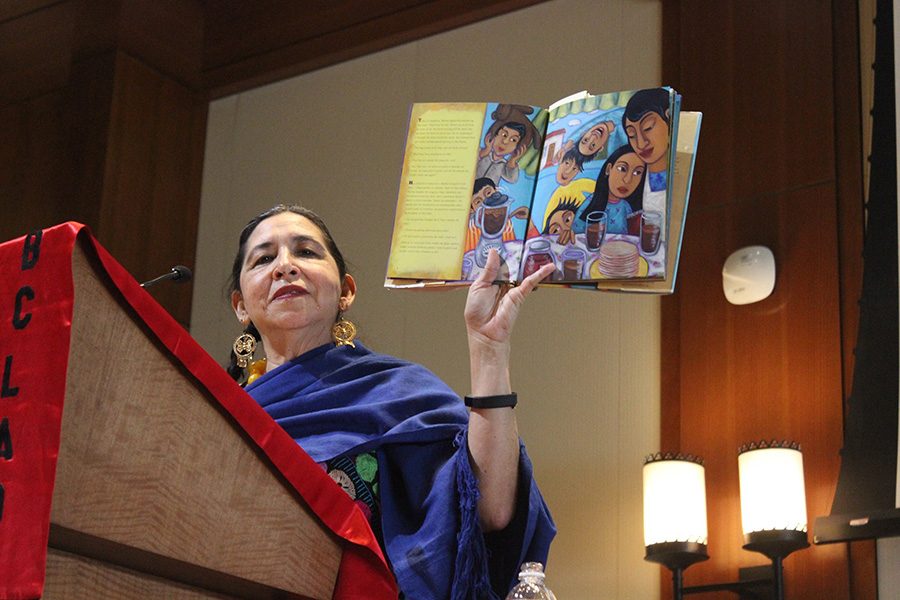The Department of Dual Language and English Learner Education held a Voice Your Language forum on Feb. 20 to promote multilingualism in the United States.
Students, educators and community members attended the event that featured guest speakers authors Amada Irma Perez and Reyna Grande as well as the Grammy award-winning musician 123Andres. Each spoke on the importance of connecting with one’s cultural heritage.
Perez, who wrote the book My Diary from Here to There: Mi diario de aqui hasta alla, talked about the advice her grandma gave her when she moved to the U.S.
“She said, ‘Darling, never forget who you are and where you come from. Keep your language and culture alive in your diary and in your heart,” Perez said.
The event focused on bilingual education, as well as the benefits of learning a second language.
Dual Language and English Learner Education professor Sera Hernandez explained the complexity behind multilingual education.
“When we talk about it, we can’t talk about it without thinking about issues of immigration, identity, literacy, language,” she said. “Especially now with the current political climate.”
In San Diego alone, more than 112,000 of the students in public education are learning English as their second language. In many cases they have had experiences of migration within their families.
This was the focus of Author Reyna Grande, who spoke about her book, The Distance Between Us, in which she reflects on her own journey to the United States.
“I thought I was done with borders, (but) I didn’t know there would be more barriers to be crossed,” she said. “Cultural borders, language broders, legal borders, gender and career borders.”
But even though the rate of immigration to the United States has decreased over the last three years, the mission now is to educate those kids who are already here.
Musician 123Andres focuses on educating children about different cultures and circumstances that come with migration.
“I grew up learning that it was one continent called America and it’s a beautiful concept,” he said. “A kid in Mexico may feel connected with a kid in Argentina and they feel brotherhood and they feel they’re part of the same continent.”
After each speaker, the audience had the opportunity to ask questions questions to get to know their story better. Many of them were SDSU students.
For graduate student Arturo Navarro, the event was also a chance to talk about current events.
“Voice Your Language isn’t just about education and educators,” he said. “To me it has a broader appeal, and that appeal I think is a little bit more global with all this xenophobia that’s been going on and this ‘us versus them’ mentality.’”







